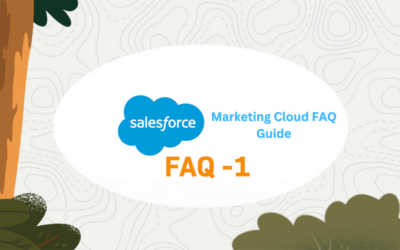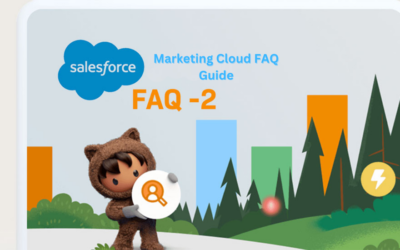Email marketing remains a powerful tool for businesses to engage with their audience, nurture leads, and drive conversions. With the right strategies and tools, organizations can maximize the effectiveness of their email campaigns. In this article, we will explore email marketing best practices and discuss how businesses can optimize their campaigns using Salesforce Marketing Cloud. If you need assistance with Salesforce Marketing Cloud setup and optimization, companies like CRM Force can provide valuable expertise and support.
1. Define Clear Objectives and Target Audience
Before diving into email campaign creation, it is crucial to define clear objectives and identify the target audience. Understanding the purpose of your campaign—whether it’s generating leads, promoting products, or nurturing existing customers—allows you to align your email content, design, and calls-to-action accordingly. By segmenting your target audience based on demographics, preferences, or past interactions, you can deliver personalized messages that increase engagement and conversion rates.
2. Craft Compelling Email Designs
Creating visually appealing and engaging email designs is essential to capture your recipients’ attention. Salesforce Marketing Cloud provides a range of email templates and design tools that enable businesses to create attractive and responsive email campaigns. It’s important to ensure your email design is optimized for various devices and email clients to deliver a seamless user experience. Incorporating compelling visuals, clear call-to-action buttons, and concise copy can enhance engagement and encourage recipients to click through to desired landing pages.
3. Personalize Email Content and Recommendations
Personalization is a key element of successful email marketing. Salesforce Marketing Cloud offers powerful personalization features, allowing businesses to tailor email content based on recipient data and preferences. By leveraging customer data from Salesforce CRM or external sources, you can deliver highly personalized recommendations, product offers, or content that resonates with each recipient. Personalization enhances engagement, fosters a sense of connection, and builds customer loyalty.
4. Utilize A/B Testing for Continuous Improvement
A/B testing is a valuable practice in email marketing that helps identify the most effective strategies and optimize campaign performance. With Salesforce Marketing Cloud, businesses can easily set up A/B tests by varying elements such as subject lines, email content, or call-to-action buttons. By testing different variables and analyzing the results, you can gain insights into what resonates best with your audience and make data-driven decisions to improve future campaigns. Continuous testing and optimization ensure your email marketing efforts evolve and remain relevant.
5. Automate Email Workflows for Efficiency and Timely Communication:
Salesforce Marketing Cloud offers robust automation capabilities that streamline email workflows and deliver timely, relevant messages. Automation allows businesses to set up triggered emails based on specific customer actions or events, such as welcome emails, abandoned cart reminders, or birthday offers. By automating these workflows, you can deliver personalized messages at the right moment, improving customer engagement and conversion rates. Automation saves time and resources by reducing manual effort and ensuring consistent communication across the customer journey.
6. Monitor Performance and Analyze Metrics
Tracking and analyzing email campaign metrics are vital for understanding the effectiveness of your efforts and identifying areas for improvement. Salesforce Marketing Cloud provides comprehensive analytics and reporting features to measure key metrics like open rates, click-through rates, conversion rates, and unsubscribe rates. By monitoring these metrics and conducting regular performance reviews, you can gain insights into campaign success, identify trends, and make data-driven decisions to optimize future campaigns. Establishing KPIs aligned with campaign objectives and continually refining strategies based on performance insights is essential.
Implementing email marketing best practices and leveraging Salesforce Marketing Cloud can significantly enhance the success of your campaigns. By defining clear objectives, crafting compelling designs, personalizing content, utilizing A/B testing, automating workflows, and monitoring performance, businesses can optimize their email marketing efforts for maximum impact. If you need assistance with Salesforce Marketing Cloud setup and optimization, companies like CRM Force can provide the expertise and support you need to achieve your email marketing goals. Remember, continuous testing, analysis, and improvement are key to staying ahead in the competitive email marketing landscape and driving long-term success for your business.





